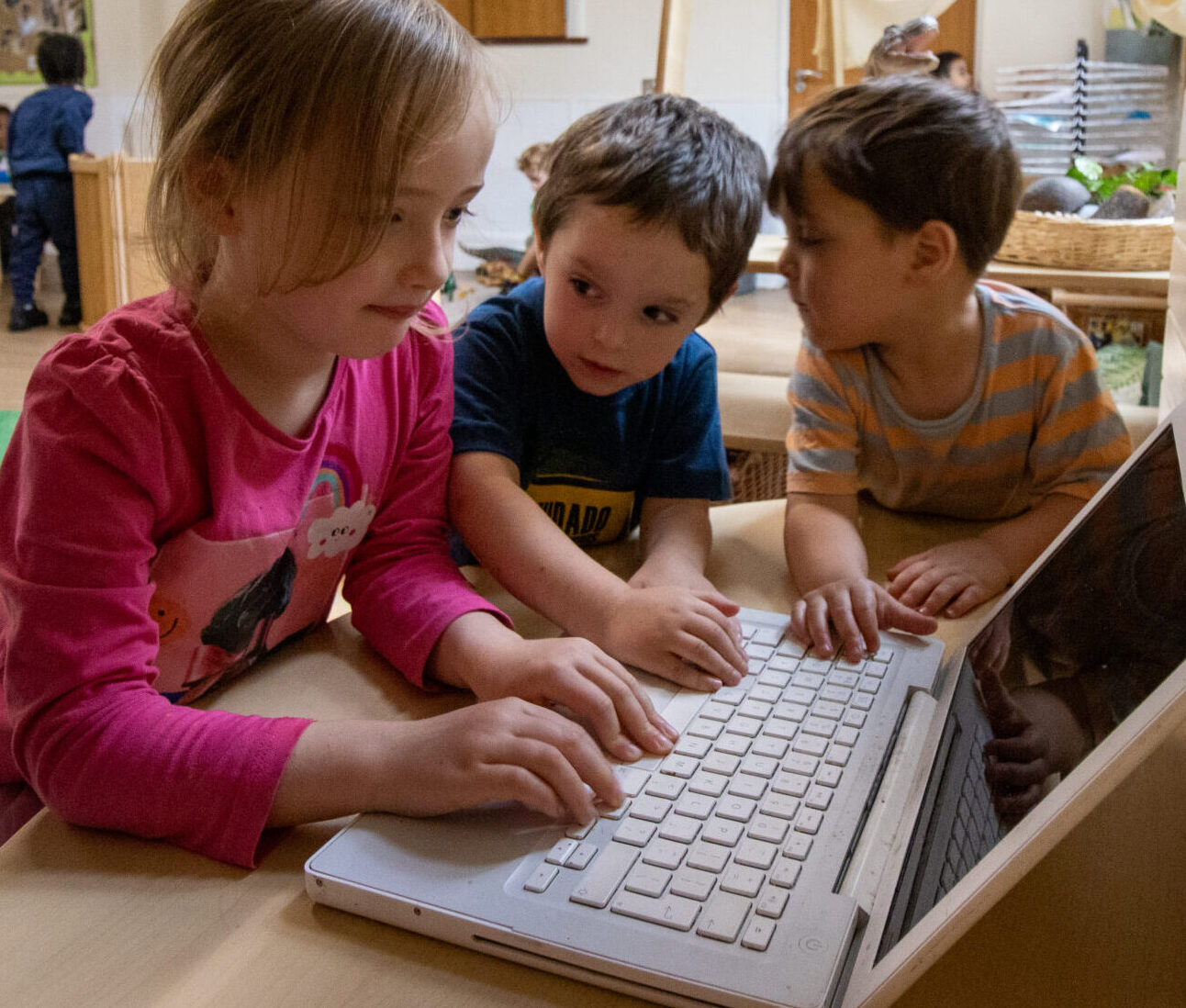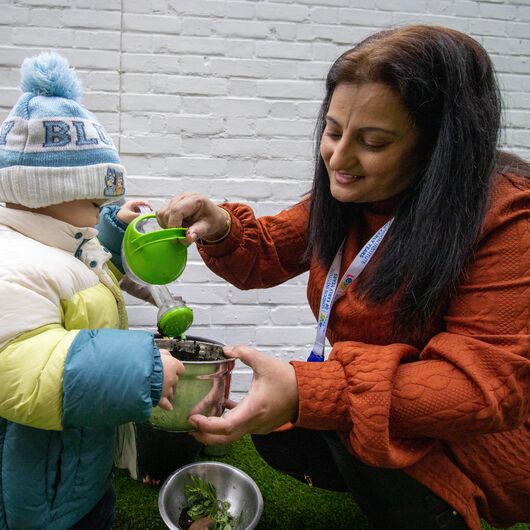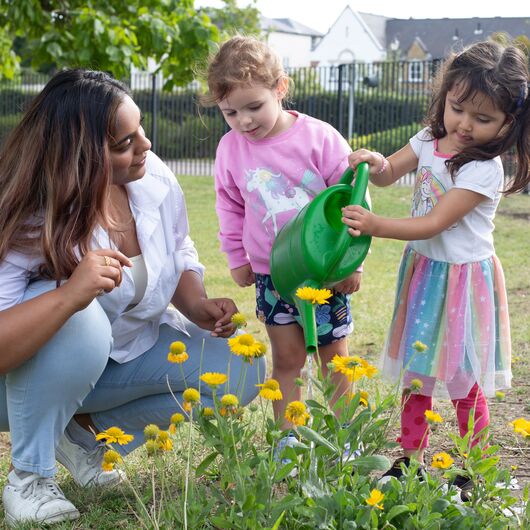
AI, Screen Time and Young Children in Early Development
Why read this Practical insight for parents worried about screen time and early development Explains how AI and the digital environment shape childhood, not just device…
November 17th 2025
Public debate about sustainability cannot continue to overlook babies and very young children. At the recent Decarbonisation of London conference, I heard many positive proposals for reducing carbon emissions and shifting public behaviour, yet the conversation centred almost entirely on the 18 – 55 age bracket. No attention was given to the very young or the very old, and, for the record, 55 is hardly old. This omission matters! Babies are not passive recipients of adult decision making but active participants in shaping the kind of world they will inherit. If we exclude them from conversations about sustainability, we misunderstand where sustainable thinking begins.

Sustainability in the Early Years is fundamentally relational. It is about people, environments and the systems that support wellbeing. We often treat sustainability as something technical or advanced, focused on recycling systems or carbon policies, yet it begins long before a child can walk or talk. It begins in the baby room. Babies arrive already in relationship with their caregivers, their surroundings, and the sensory rhythms of daily life. Through these early encounters, they develop trust, empathy, and belonging– the emotional soil from which sustainable values later grow. When adults respond warmly, show respect for nature, and use resources thoughtfully, babies experience sustainability as a lived value rather than an abstract concept.
These foundations are cultural as much as neurological. The first three years shape how children come to understand cooperation, care, and curiosity. Neuroscience confirms that early relationships form the architecture of the brain, influencing attitudes towards self, others, and the wider world. If babies grow up in environments where community, fairness, and kindness are modelled, they are more likely to become compassionate citizens who see themselves as connected to others and responsible for the wellbeing of their community and planet.
This is why sustainability in early childhood must focus on cultivating connection and responsibility. Calm, predictable spaces, natural materials, unhurried routines, and opportunities to explore the world help babies develop a sense of security and interest in their surroundings. When children are listened to and valued, they learn to care for others. As Montessori noted, establishing peace is the true work of education, and sustainability and peace education are inseparable in the Early Years. A baby who experiences empathy today may well become a peacemaker tomorrow.

Early Years educators play a crucial role by offering small, inquiry-based experiences that nurture agency and curiosity. Research reminds us that even the youngest children are citizens with a right to be heard. Listening includes their gestures, expressions, silences, songs, and movement. Environmental stewardship in the Early Years, from gardening to conserving water, connects practical care with fairness and community. Sustainability, then, is not only about the environment. It is about human flourishing, justice, and belonging, starting from birth.
If you are interested to learn more, join the Action for Sustainability Community of Practice
Please also join us for LEYF’s 19th Annual Margaret Horn Debate, chaired by journalist, Gabriella Jozwiak, where we will be asking a question: Is the government’s offer of childcare from nine months truly in the best interests of babies or more about boosting the economy?
Date: Thursday 20th November 2025 (Social Enterprise Day)
Time: 5pm – 6.30pm
Click here to reserve your free ticket!

Why read this Practical insight for parents worried about screen time and early development Explains how AI and the digital environment shape childhood, not just device…

The year 2023 marked our 120th anniversary, celebrating a long and fascinating history that began in 1903 when a group of doctors and almoners came together to tackle poverty in…

There are some books that arrive at exactly the right moment, and Babies’ and Toddlers’ Rights in Practice by Mary Moloney,…